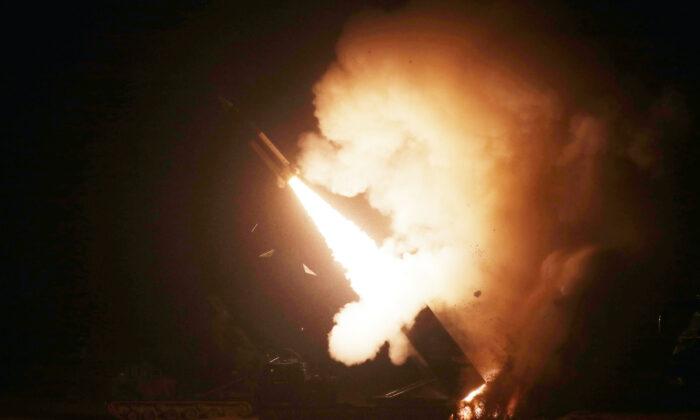South Korea, and the United States, fired four short-range missiles into the sea off the country’s east coast on Wednesday morning local time in response to North Korea sending a ballistic missile over Japan and into the Pacific Ocean the day before, officials in Seoul said.
Following North Korea’s actions on Tuesday, which are seen as provocations, South Korea’s First Vice Foreign Minister Cho Hyun-dong spoke with his U.S. and Japanese counterparts that evening to discuss a joint response.
Japanese Prime Minister Fumio Kishida strongly condemned North Korea’s actions, calling them “outrageous” and a threat to the security of Japan and the international community.
U.N. Secretary-General Antonio Guterres echoed the EU, calling it a “reckless act” and a violation of Security Council resolutions.
US, South Korea, Japan to Cooperate on Countermeasures
The vice ministers of the United States, Japan, and South Korea agreed on Tuesday to work together to mitigate future North Korean threats, Seoul said on Wednesday.They plan to meet in Tokyo this month to continue discussions about responding to North Korea at a Korea-U.S.-Japan Vice Foreign Ministers Council meeting.
“[T]he three vice ministers evaluated that the three countries are closely communicating with each other at the bilateral and trilateral levels, including foreign ministers and vice ministers, and the chief representative for North Korean nuclear weapons, regarding North Korea’s recent missile launch, and the U.N. Security Council response,” Seoul said.
In a separate call with the United States and South Korea, the two vice foreign ministers “decided to respond strongly” to North Korea.
South Korean lawmakers believe North Korea may be preparing for another nuclear test either on Oct. 16 or 17, ahead of the November U.S. midterm elections and at the time of the Chinese regime’s party congress, which is scheduled for Oct. 16.
Pompeo, who was speaking at the Asian Leadership Conference in Seoul, said he believes Chinese leader Xi Jinping uses Kim as a puppet. The Chinese regime, he said, uses Pyongyang as “an important buffer state,” causing Washington to spend energy defending East Asia against North Korea’s nuclear weapons systems.





